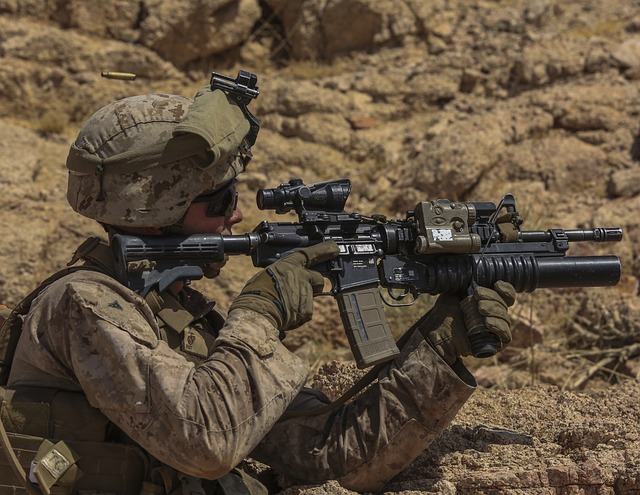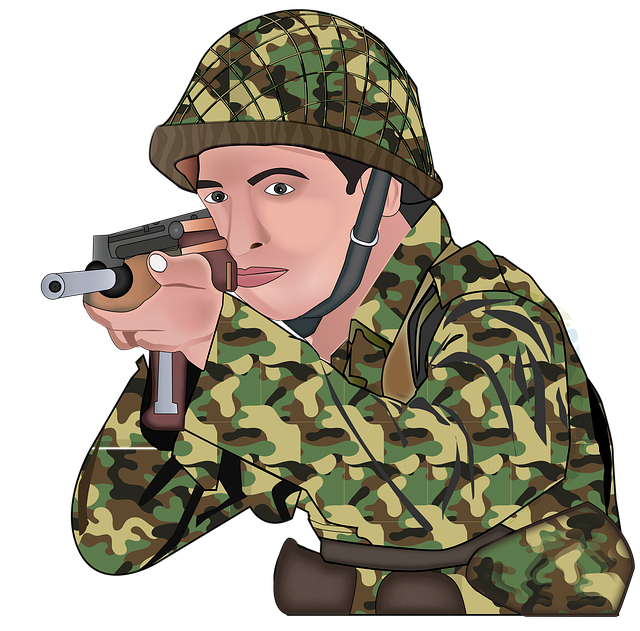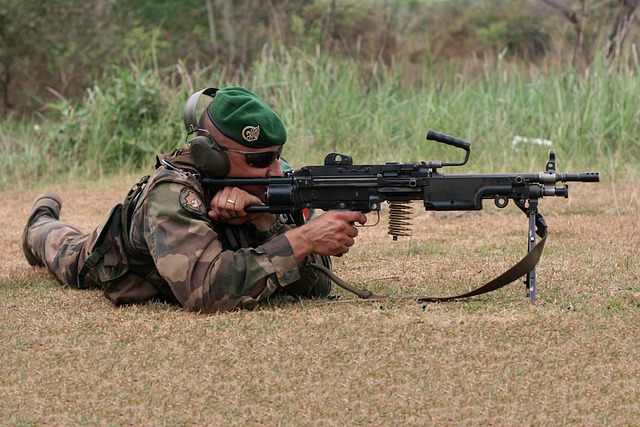The US Army Special Forces, renowned for their exceptional operational skills, also play a significant role in youth education. As guest speakers and mentors, they inspire students through interactive workshops, sharing real-world insights into leadership, teamwork, and problem-solving. Their emphasis on physical fitness, mental toughness, and cultural adaptability fosters discipline, perseverance, and adaptability in today's youth. By integrating their unique backgrounds and expertise into curricula, Special Forces principles transform education, enhancing engagement, critical thinking, and resilience. These programs, featuring scenario-based training and rigorous challenges, prepare young individuals to excel academically, professionally, and as active community contributors.
The US Army Special Forces, known for their exceptional training and global reach, have quietly made a significant impact in educational programs for youth. This article explores how their unique approach, honed through special operations principles, benefits young participants by fostering resilience and essential skills. We delve into program design, community impact, and long-term success stories, highlighting the critical role of Special Forces in shaping the next generation.
- The Role of US Army Special Forces in Youth Education
- Program Design: Incorporating Special Operations Principles
- Benefits for Young Participants: Building Resilience and Skills
- Community Impact and Long-term Success Stories
The Role of US Army Special Forces in Youth Education

The US Army Special Forces, renowned for their exceptional operational capabilities, also play a significant role in youth education. These highly trained soldiers bring unique perspectives and skills to educational programs aimed at young people. They often serve as guest speakers or mentors, sharing their experiences in diverse environments and complex situations. Through interactive workshops and engaging discussions, they inspire students to embrace challenges, cultivate resilience, and develop critical thinking abilities. Special Forces members’ real-world insights into leadership, teamwork, and problem-solving offer invaluable learning opportunities.
Moreover, the Special Forces’ emphasis on physical fitness, mental toughness, and cultural adaptability makes them ideal educators for youth facing modern-day challenges. They help young individuals understand the importance of discipline, perseverance, and adapting to changing circumstances—essential traits in today’s rapidly evolving world. By integrating their unique backgrounds and expertise into educational curricula, these soldiers contribute to shaping well-rounded, resilient, and globally conscious youth.
Program Design: Incorporating Special Operations Principles

In designing educational programs for youth, incorporating principles from the US Army Special Forces can significantly enhance engagement and learning outcomes. Special Operations Principles emphasize adaptability, creativity, and leadership—essential skills that not only mirror real-world challenges but also provide young participants with practical tools for problem-solving. By integrating these principles, program creators can transform traditional teaching methods into dynamic, interactive experiences.
For instance, curriculum developers might adopt the Special Forces’ emphasis on scenario-based training, where students navigate complex situations that require critical thinking and collaboration. This approach not only makes learning more engaging but also prepares youth for real-life challenges by fostering a mindset of resilience and strategic planning. Additionally, the US Army Special Forces’ focus on mental toughness and physical fitness can be translated into activities that promote overall well-being, discipline, and perseverance among participants.
Benefits for Young Participants: Building Resilience and Skills

The educational programs designed for youth, inspired by the rigorous training methods of the US Army Special Forces, offer a unique opportunity to foster resilience and develop essential skills. These programs often incorporate intense physical challenges, problem-solving scenarios, and team-building exercises that mirror the demanding nature of special forces operations. By participating in such initiatives, young individuals learn to push beyond their comfort zones, cultivating mental fortitude and adaptability.
Building resilience is not merely about endurance; it equips participants with a mindset to approach obstacles as opportunities. They develop critical thinking and decision-making abilities, learning to analyze complex situations and make swift, effective choices. Moreover, these programs foster a sense of camaraderie and teamwork, teaching young people the value of collaboration and leadership. The skills gained from these experiences can significantly contribute to their personal growth, academic success, and future career prospects.
Community Impact and Long-term Success Stories

The impact of educational programs on youth extends far beyond the classroom, especially when these programs are inspired by elite models like the US Army Special Forces. Such initiatives often foster a sense of community and purpose, empowering young individuals to become active contributors to their societies. By instilling values of discipline, leadership, and teamwork, these programs prepare youth for both academic and professional success.
Long-term success stories abound, with former participants going on to excel in diverse fields, from science and technology to business and public service. The resilience and adaptability cultivated through rigorous training and educational exposure enable them to navigate challenges and seize opportunities. These stories serve as a testament to the transformative power of well-designed educational programs, shaping not just individuals but also communities that benefit from their enhanced capabilities and civic engagement.
The US Army Special Forces’ involvement in educational programs for youth has proven to be a game-changer, offering unique benefits through their specialized training methods. By incorporating special operations principles into program design, these initiatives foster resilience and essential skills in young participants. The community impact is substantial, with long-term success stories emerging from these innovative programs, shaping the lives of today’s youth for future leadership roles.
